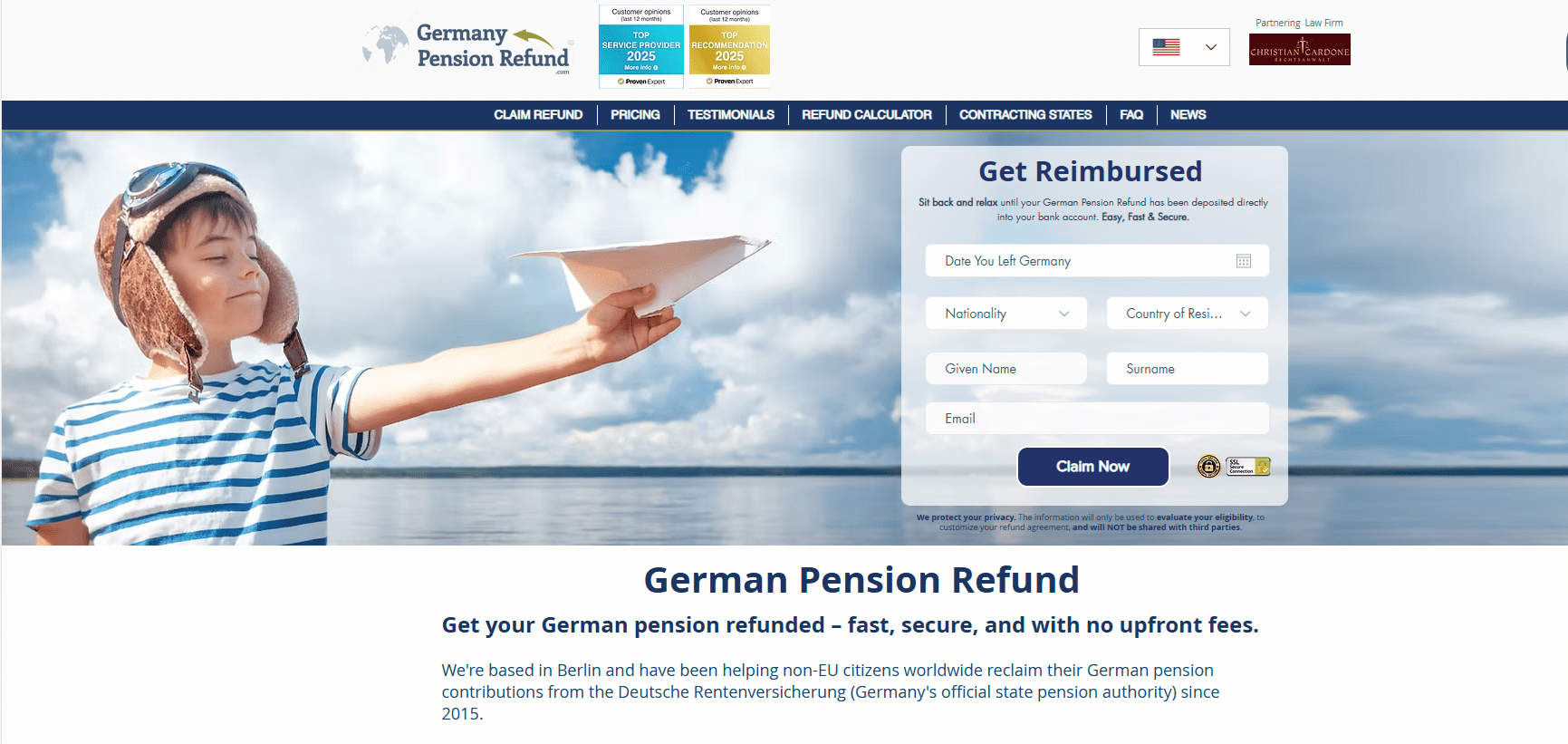Leaving Germany after working there for some time often brings one important question: Can I get my pension contributions back? The answer is yes—under certain conditions. If you’re eligible, the process can be straightforward when you understand the steps involved. This guide provides the essentials you need to know about the german pension refund process explained, including who qualifies, what documents you need, and how to apply successfully.
Why does the German pension refund system exist?
Germany operates a contributory pension system funded by both employees and employers. If you’ve worked in Germany, you’ve paid approximately 9.3% of your gross salary into the pension scheme, with your employer matching that amount. The purpose of these contributions is to provide income during retirement.
However, if you leave Germany and no longer live in the EU or the UK, the German system recognizes that you may never use these contributions for retirement. In such cases, it allows eligible individuals to claim a refund of their employee contributions.
This refund system offers financial fairness to non-EU citizens who built careers outside Germany and will not rely on the German pension in old age.
Who qualifies for a German pension refund?
Not everyone can request a refund. There are specific rules you must meet:
1. Citizenship
You must be a non-EU, non-EEA, non-Swiss and non-UK citizen. Citizens of these countries are excluded from refunds because their pension rights are preserved under European regulations.
2. Waiting period
You must wait at least 24 months after your last contribution before applying for a refund. This ensures that you have no active ties to the German pension system.
3. Country of residence
You must live outside the EU and the UK at the time of application. Even if you are a non-EU citizen, remaining in an EU country disqualifies you.
4. Contribution duration and special rules
This is where it gets nuanced:
- There is no minimum contribution period to qualify for a refund. Even one month of contributions may be refundable.
- For some nationalities (such as the USA, India, Australia, Canada, Brazil, Albania, Moldova, North Macedonia, The Philippines, South Korea, and Uruguay), there is a maximum limit of 59 months. If you reach 60 months, you qualify for a German old-age pension and cannot claim a German pension refund based on the social security agreement with your home country. You must wait until retirement age to apply for monthly payments.
- All other countries have no such limitation, meaning you can request a refund even if you already qualified for a pension. You only need to wait 24 months unless you have already reached the German retirement age — in that case, you can apply immediately without waiting.
Understanding these distinctions is critical, as incorrect assumptions often lead to delays or rejections.
How much can you get back?
The refund amount equals your employee’s share of contributions, which is 9.3% of your gross salary during your employment in Germany. Employer contributions are not refunded, and the amount is returned without interest.
For example:
If your gross salary was €3,500 per month for two years, your contributions would be:
€3,500 × 9.3% = €325.50 per month
24 months × €325.50 = €7,812 (approximate refund)
Taxes in your home country may apply, so check local regulations or tax treaties to avoid surprises.
Step-by-step: how to apply for a German pension refund
Applying for a refund is not complicated, but it requires attention to detail. Here’s what to expect:
Step 1: Gather the required documents
You’ll need:
- Passport or national ID
- Deregistration certificate (Abmeldebescheinigung) from Germany
- Proof of current residence outside the EU/UK
- Employment records and your pension insurance number
Missing or incomplete documents are the most common cause of delays.
Step 2: Complete the application form
The official form is V0901 – Antrag auf Erstattung von Beiträgen (Application for Refund of Contributions). You can download it from the Deutsche Rentenversicherung (DRV) website.
Step 3: Submit your application
Send the form and documents by post to the DRV. Many applicants choose to work with professional services that handle translations, communications, and follow-ups to avoid mistakes and help reduce international transaction costs..
Step 4: Wait for processing
Processing typically takes 6 months, though it can be longer if documents are missing or additional checks are needed.
Step 5: Receive your refund
Once approved, the refund will be transferred to your international bank account. Transfers to bank account outside of Germany may be delayed for up to 8 weeks after approval to make sure there is no appeal pending from your end.
Should you apply on your own or use a service?
You can handle the process yourself, but many people prefer using a specialist service for these reasons:
- Forms and correspondence are in German.
- Small errors can delay the refund by months.
- Professional services track your application and assist with required translations.
Most reputable services only charge a fee upon successful refund, making them a low-risk option.
Common questions about German pension refunds
Is there a deadline to apply?
There is no strict deadline, but you must wait 24 months after your last contribution. However, the sooner you apply after the waiting period, the better, as refunds do not accrue interest.
Will I lose all pension rights after a refund?
Yes. Once you accept the refund, your contributions for that period are canceled. If you return to Germany to work later, you start building new entitlements from zero.
What if I worked more than 59 months?
If you are from a country with a bilateral agreement like India or the USA, you cannot claim a refund after reaching 60 months. Instead, you can apply for a retirement pension at the legal age. For most other countries, you can still choose a refund.
Do I pay taxes on the refund?
Germany does not tax the refund, but your home country might. Check with a tax advisor about reporting requirements.
Avoid these common mistakes
- Applying too early: Submitting before the 24-month waiting period leads to rejection.
- Incomplete documents: Missing deregistration or residence proof delays the process.
- Wrong assumptions: Believing you’re ineligible without checking the actual rules may cost you thousands of euros.
Final thoughts
Getting your German pension refund is often a smart financial decision if you no longer plan to retire in Germany. While the process takes time, understanding the rules—and avoiding common mistakes—can save you stress and money.
If you want to simplify the procedure and ensure everything is done correctly, expert help can make the process faster and easier. Learn more and start your application here: https://www.germanypensionrefund.com/.

































